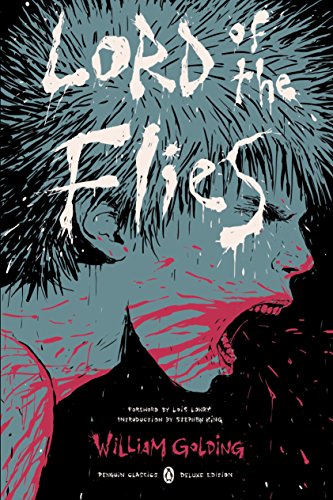By Andrew Burt
If we're not careful, the literary canon can become a negative, restrictive influence rather than an enlightening one.
 |
| The Canon, while presigious, isn't infallible |
Pessimism in the Canon
When I was in high school, I was a reader. I read anything I could get my hands on- not tempered by genre or interest, but on what constituted a good story. In school, the books had a running theme...The Lord of the Flies displayed the inherent evil in mankind; Macbeth embraced the corruptibility of character; The Great Gatsby illustrated the death of idealism. Individually they were masterpieces; together, they were a dreadful plunge into depression. I noticed a trend in those around me- they hated reading because they associated it with the labyrinthine way school books seemed to tell us life was an unrewarding experience.
It's important to recognize the influence this has on society. Happiness is a choice, and the canon gives the unsettling sensation that literature's overarching message is that it's a naive, unwise choice. Such a conclusion is not just discouraging- it's wrong. Literature is full of hope. Even the canon has optimistic works such as Austen's work or the Pilgrim's Progress. Being in the very small minority, they just aren't emphasized.
 |
| Wycliffe and Hus gave their lives to make the Bible widely available to the public |
Restrictions Never Work Out
Think of the restrictive nature of the canon. It might be compared to the watch cry of the Reformation- Sola Scriptura. They believed Catholic authorities didn't have the right to impose their interpretation of values on the public- that the works should speak for themselves. Heroes such as Jan Hus, John Wycliffe, and more dedicated their lives bringing the Bible to the common folk and making the middle-men obsolete. Just as the Bible is more meaningful when applied individually, literature is better when approached personally. Today's top scholars shouldn't impose their value system on the entire school of literature.
Ironically, reformers upheld the sanctity of the biblical 'canon', whereas we explore the triviality of the literary 'canon'. Instead of deciding who has God's authority, we're deciding who has artistic merit-a necessarily subjective topic. With little diversity, other ideas become stifled when they should be made available for the public's easy viewing. Consider the value if professors in all fields could use literature as a tool to teach their subjects. By relying on the canon in our education system, the value of reading skews to the side of mistaken objectivity.
Potential Changes
Professors should be given the leeway to teach literature unfettered by the canon. One of the primary considerations in choosing the curriculum should be diversity-not necessarily in culture, but in perspective and philosophy. The proffered variety will expose students to challenging new ideas and mindfully form their own opinions. That's the kind of education that English has the potential of giving.
Sources
Image Credits
"The Literary Canon" and "John Wycliffe and Jan Hus" made available by the Creative Commons
The Lord of the Flies by Adams Carvalho

No comments:
Post a Comment